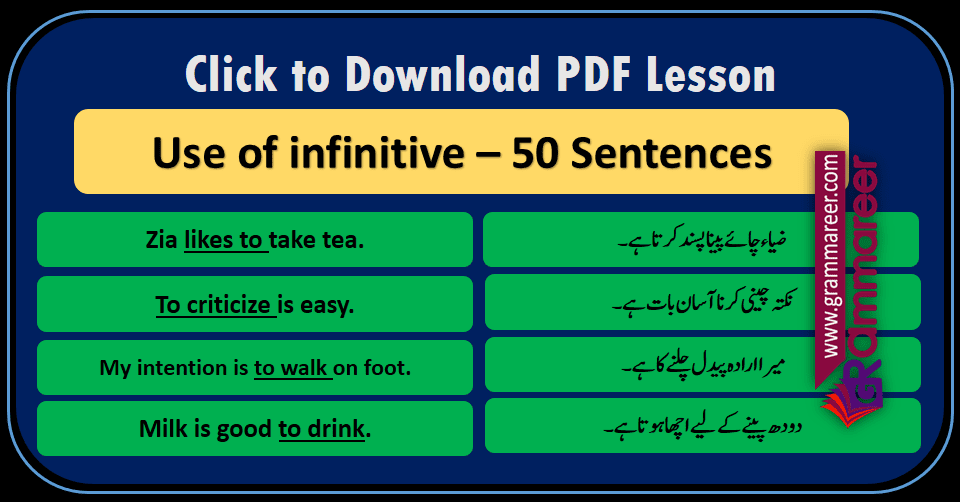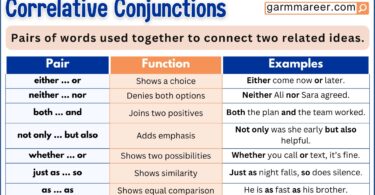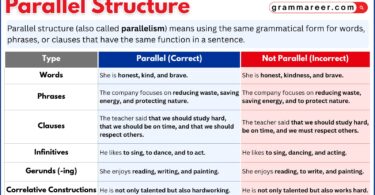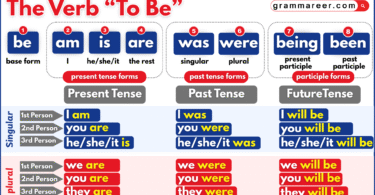The use of infinitive is a key part of English grammar and helps in forming correct sentences. An infinitive is simply the base form of a verb, often introduced with “to.” Whether you’re speaking or writing, knowing how to use the infinitive form will make your English clearer. Just like in Urdu, English infinitives play an essential role in sentence construction. Mastering the use of infinitive will boost your ability to convey ideas smoothly, both in speaking and writing.
Table of Contents
Use of Infinitive
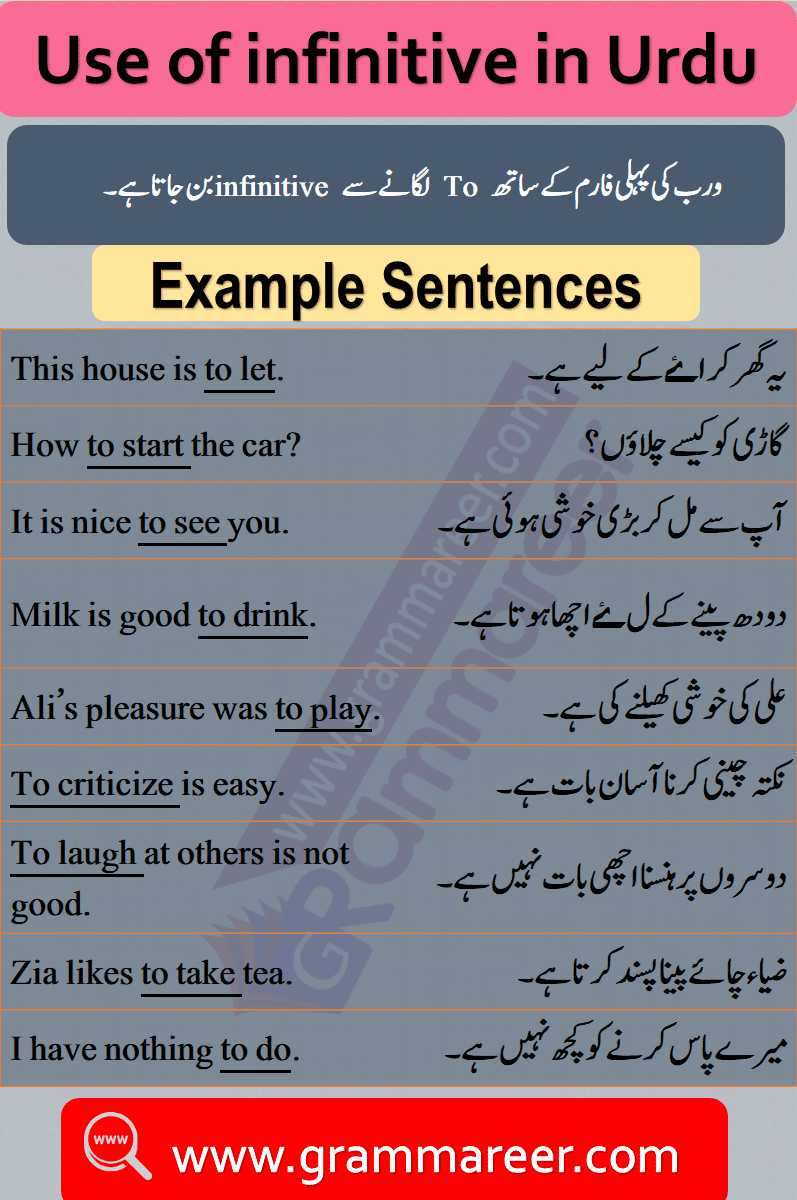
Use of Infinitive Explained in Urdu
What is an Infinitive?
An infinitive is the basic form of a verb, often preceded by “to” in English. It is widely used in both English and Urdu to express actions or states. In Urdu, infinitives often end in “نا,” and just like in English, they help to explain the purpose or intent of an action. For example:
- To read – پڑھنا
- To write – لکھنا
The infinitive in English is simple but plays an important role in sentence formation. Below, we explore various examples to understand how infinitives are used in English and translated into Urdu.
Examples of Infinitive in Sentences
- Zia likes to take tea.
ضیاء چائے پینا پسند کرتاہے۔ - Now this is the time to read.
اب یہ پڑھنےکاوقت ہے۔ - To laugh at others is not good.
دوسروں پرہنسنااچھی بات نہیں ہے۔ - To criticize is easy.
نکتہ چینی کرناآسان بات ہے۔ - I do not want to injure anybody’s feeling.
میں کسی کا دل دکھانا نہیں چاہتا۔
Infinitives in Everyday Use
Infinitives are common in daily language and can be used to explain purposes or actions:
- He is sorry to have kept me waiting so long.
اسےافسوس ہے کہ اس نےمجھےاتنی دیرانتظارمیں رکھا۔ - My intention is to walk on foot.
میرا ارادہ پیدل چلنےکا ہے۔ - Ali’s pleasure was to play.
علی کی خوشی کھیلنےکی ہے۔
Infinitives help in connecting ideas and providing clarity in both English and Urdu.
Common Infinitive Phrases
- To learn English is very easy.
انگلش سیکھنا بہت آسان ہے۔ - He worked hard to pass the examination.
اس نےامتحان پاس کرنےکےلۓبہت محنت کی۔
These sentences illustrate how infinitives help express actions and intentions in both languages.
Note: Verbs Without “To”
There are certain verbs where “to” is not used in English, such as:
Hear, Feel, See, Make, Need, Dare, Bid, Please, Watch, Behold, Let.
For example:
- They saw the child drown.
انہوں نےبچےکوڈوبتےہوۓدیکھا۔ - I feel the cold air touch my hands.
میں ٹھنڈی ہواکوہاتھوں سےچھوتی ہوئی محسوس کرتاہوں۔
Infinitives bring flexibility and clarity to both English and Urdu, making communication more effective.
Download PDF
Read More

